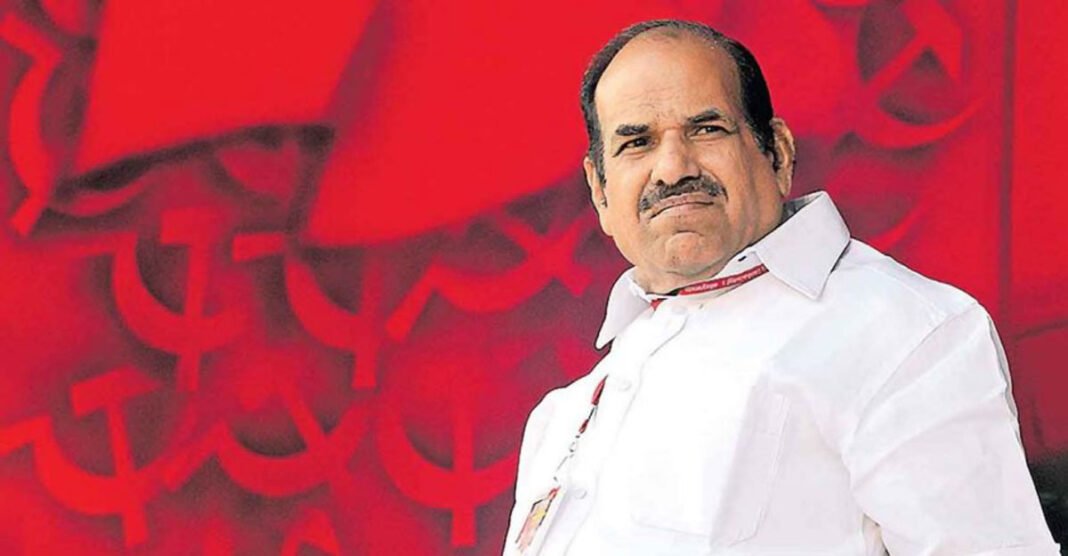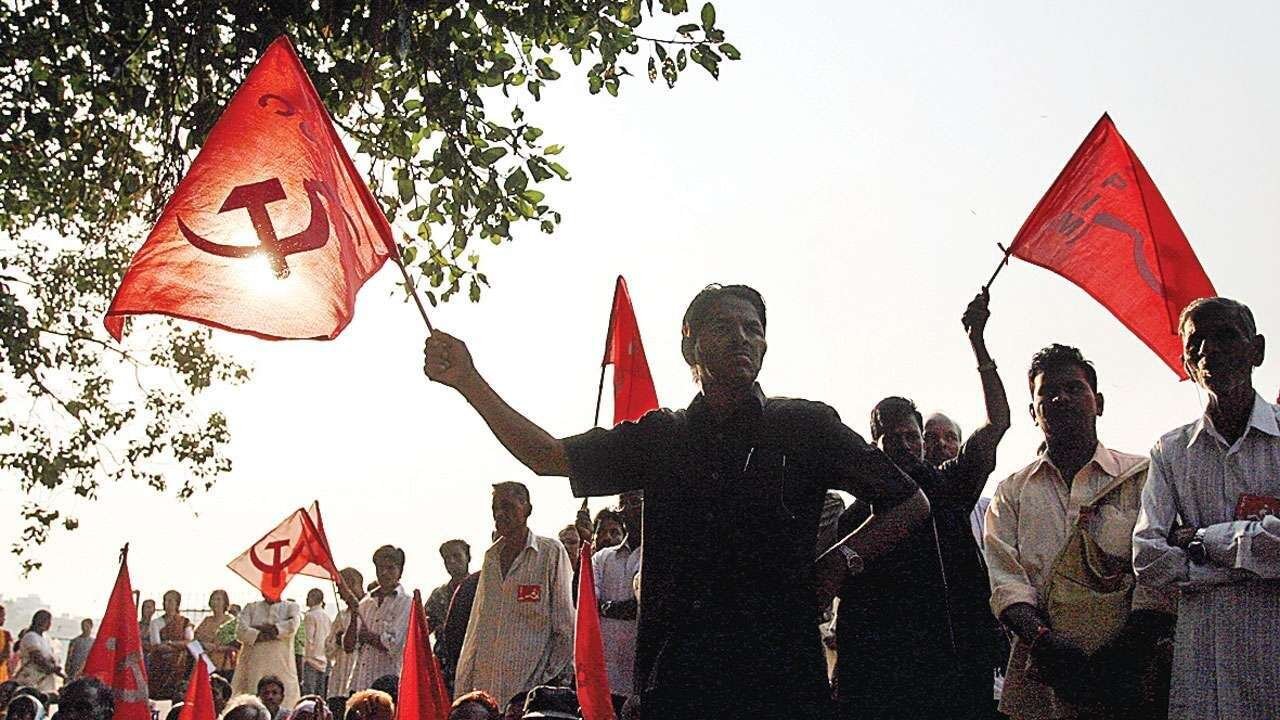By: P. Sreekumaran
There is no mistaking the signs. The four-day CPI(M) state conference, which concluded the other day, signals a major policy shift. The party is clearly in a mood to modify its strategies in accordance with the changing times. Chief Minister Pinarayi Vijayan put it succinctly: “Time will not wait for anyone.”
With the express objective of transforming Kerala into a global model, the Chief Minister’s new development document aims to raise the living standards in the State to the level of developed, middle-income nations in 25 years. The party has, therefore, sets its sights clearly on private investment – something which it stoutly opposed in the past. CPI(M) state secretary Kodiyeri Balakrishnan defended the document saying that the CPI(M) has never opposed private investment in the education sector. But the party is of the firm view that it should be done under social control.
The Government will have full control over investment in the education sector to make sure that it does not harm the interests of the State. Nor will a deserving student be denied opportunity in view of the proposed policy shift, Kodiyeri asserted. “Strengthening the higher education sector, making use of the opportunities in the knowledge economy, linking universities with production sectors, and modernization of traditional industries are some of the proposals in the document. The accent, he said, will be firmly on societal control over such investments, he reiterated, adding that loans that are not harmful to the state’s interests can be availed. Likewise, Foreign Direct Investment (FDI) can be allowed, subject to conditions.
It remains to be seen how the allies of the CPI(M) will react to the new document. The CPI(M)’s principal ally, the CPI evidently has reservations about it. However, since the CM has said that the document will be discussed in the LDF, the party will voice its suggestions at the meeting. One thing is however clear. The paradigm shift in the development perspective of the CPI(M) has taken the CPI by surprise. The CPI, for instance, has reservations on welcoming public private participation in the higher education sector and suggestions to make public sector units independent profit centres. This is at odds with the stand of senior party leaders on the power of the public sector and worker supremacy.
It may be mentioned that, when the National Education Policy (NEP) was announced in 2020, CPI general secretary D Raja had vehemently opposed the document. His reasons: the document would certainly result in privatization, commercialization and communalization of the education sector. The CPI’s trade union wing, the AITUC fears that many benefits currently enjoyed by the employees would be curtailed. CPI state secretary tried to allay the AITUC’s fears saying that it is only a draft document. It would be taken up for discussion at the LDF meeting once it is finalized.
Similarly, the Chief Minister and the CPI(M) will have to take into account the concerns of the party’s trade union wing, CITU over the document. The CITU, for instance, is opposed to suggestions that salaries be fixed according to the organisation’s strength. This, the CITU thinks, is at odds with its stand that wages should be determined on the living costs of a particular region. If the TUs cannot ensure adequate wages for the workers, they will lose their very rationale for existence. Therefore, there is every possibility of the CITU strongly demanding that the ‘controversial’ suggestion be dropped.
The conference also saw a follow-up on the generational shift in leadership the process began with the last assembly elections with several senior leaders being denied tickets. Among them were former ministers T M Isaac, A K Balan, G Sudhakaran and KK Shailaja. The conference inducted new faces into the state secretariat and the State committee. Kodiyeri Balakrishnan was elected state secretary for the third consecutive term with the delegates unanimously endorsing his name proposed by the Chief Minister.
Kodiyeri’s continuance will ensure smooth party-government coordination. Veteran CPI(M) leader VS Achuthanandan will continue to be a special invitee. Thirteen leaders were removed from the state committee as part of the party’s decision to stick to the upper age limit of 75. The only exception was Chief Minister Pinarayi Vijayan. The new entrants to the state secretariat are: PA Mohammed Riyas, P K Biju, M Swaraj, Saji Cherian, V N Vasavan, K K Jayachandran, Anavoor Nagappan and Puthaleth Dineshan. The last named will be the chief editor of the party’s mouthpiece Deshabhimani daily.
The young faces that made into the state committee are AA Rahim, Chinta Jerome and VP Sanu. Also included in the state committee was P. Sasi, who was expelled from the party in 2011 over allegations of sexual misconduct. The surprise inclusion of Sasi has caused many eyebrows to be raised. This could have been – should have been – avoided. The party will find it hard to justify Sasi’s inclusion. A notable development has been the non-inclusion in the state secretariat of P. Jayarajan despite his seniority in the state committee. Significantly, none of the leaders from Kannur suggested his name at the conference for inclusion in the state secretariat.
The Opposition has, of course, found fault with the development document. Senior CMP leader, an ally of the Congress in the united democratic Front (UDF) criticized it. The CPI(M) has, diluted its ideology by going for private investment in the education sector. The CPI(M), he pointed out, had opposed private investments while in the opposition. Now it has started implementing a policy which was adopted first by the UDF ministry headed by Congress leader A K Antony. It all began with the inauguration of Kochi airport under public-private participation when K Karunakaran was the chief minister.
In any event, the CPI(M) cannot be blamed for attempting to move in step with the times. The time has come to stop giving too much accent on ideology. The focus, the CPI(M) feels, should be on development of Kerala. The party admits that in the process, the people will have to make a few sacrifices. But, in the long run, the state would stand to benefit. The Chief Minister strongly criticized the Opposition combine’s opposition to the developmental schemes being launched by the Government
He made particular mention of the SilverLine project, which would give a booster shot to overall development of the State, he averred. The CM also reaffirmed his determination to go ahead with its implementation despite strong objections. Development of the State cannot be held hostage to the silly objections of the anti-development lobby headed by the Congress-BJP unholy nexus, Pinarayi said. Vijayan also singled out the Union Government for opposing the State Government’s efforts to ensure speedy development. The Centre, he said, should, instead, do everything to help the state achieve its developmental objectives in the true spirit of cooperative federalism. (IPA Service)







